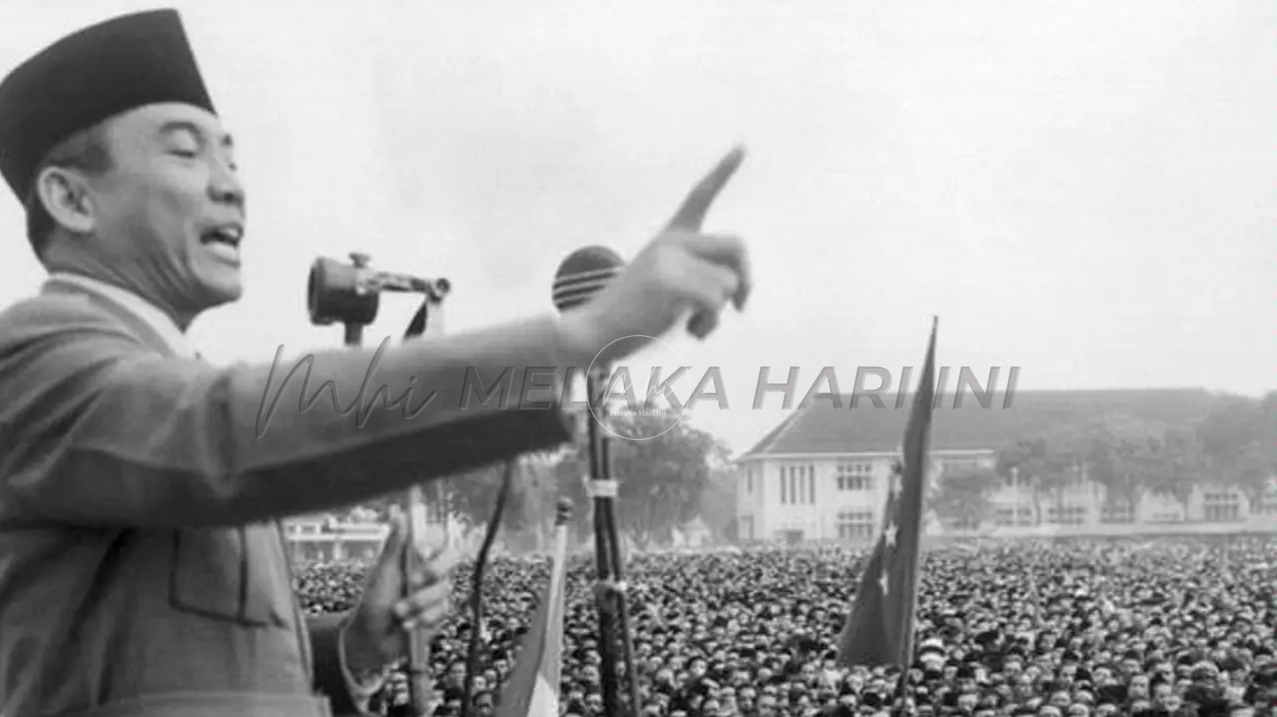
Marhaen: Sukarno’s Decolonized Icon
After graduating as an Ingenieur (Engineer) in 1926, Sukarno spent time on the possibilities opened to him. He refused two government appointments. Instead, he accepted a post in the Ksatriya Institute School run by his mentor, Ernest F. E. Douwes Dekker; not to be mistaken for Eduard Douwes Dekker in the history of Indonesian nationalism, later to be known as Setiabudi famous for his 19th century novel Max Havelaar. In is work, Eduard was known for his damning indictment of the administration of the Cultivation System. Eduard was the grand-uncle of Ernest.
In Ernest Douwes Dekker’s school, Sukarno taught history. In his Autobiography as Told to Cindy Adams (1963), he admitted that his inflammatory style of teaching history brought him up sharply against a visiting Education Department Inspector and led to the termination of his appointment.
Apart from Dekker, the other mentors were Tjokroaminoto and Tan Malaka. Sukarno was a consumer of European history. In his teens beginning 1917, he began to expose himself to European history and a wide range of political thought. He read on democracy, to Fabianism, to Marxism and the history of European socialism. According to Australian historian J.D. Legge in Sukarno: A Political Biography (1972), Sukarno’s exposure to such ideas have in different ways contributed to his thought in building the nation state of Indonesia.
Sukarno claimed to have sampled Hegel, Kant and Rosseau. Also Voltaire. Classical Western problems such as the proper role of the state in economic life, or the respective limits to authority and individual liberty would hardly have seemed relevant to him. According to Legge, Sukarno was aware of colonial rule and able to grapple with the conditions of economic domination of the Indies.
Significantly, Sukarno’s concept of freedom was of national emancipation rather than the liberty of the individual. In his study of history, he was drawn by two themes: accounts of national struggles for freedom, and the history of working-class organization in Europe. Sukarno fairly understands imperialism as a system of power from the Marxism of Alimin and Semaun. It was the primacy of nationalist revolution overriding all other considerations of social conflict, binding the people of the Indies.
Sukarno’s struggle against colonialism, imperialism and domination set the background to the concept of ‘Marhaenism.’ Sukarno was earlier much alert to the relevance of the concept of ‘proletariat.’ The social circumstances of an agrarian society cannot be framed as such, he reminded us. In his 1957 speech to the 30th anniversary meeting of the Partai Nasional Indonesia in Bandung (cited in Legge), he made a pertinent distinction between proletariat and marhaen. The proletariat, he said, were workers who do not participate in ownership of the means of production.
But our nation, Brothers and Sisters, is composed of tens of millions of people not all of whom are covered by the term proletariat. These are great numbers indeed who are not labourers, very many who do not sell their labour-power to others.
Within that framework, the proletariat do not have rights of ownership, whether of ploughs, of hoes, of buffaloes or of wares they sold at their street stalls. They were the ‘little people,’ poor but not proletarians. Sukarno argued that any social doctrine should give a central place to the presence of such people and to their needs, instead of borrowing an arid concept from a totally different situation. This is how we can see Sukarno decolonizing his political struggles. The ‘little people’ are the ‘Marhaen.’ Legge reproduces Sukarno’s version on the origin of the name. It was in a meeting with a peasant farmer near Bandung. He saw the farmer tilling his field and engaged him in a conversation.
“Who owns this field?” asked Sukarno. “I do,” replied the farmer. “And the hoe, who owns that? “I do.” “These tools, who owns them?” “I do.” “The crop on which you are working, for whom is it?” “For me.” “Is it sufficient for your needs?” “There’s barely enough to keep us alive.” “Do you ever sell your labour?” “No, I must work hard, but my labours are all for myself.” “But brother, you live in poverty.” “That’s right. I live poorly.”
Sukarno then thought to himself that the man clearly and certainly was not a member of the proletariat. He was a pauper, poor, and suffered much. What is significant to Sukarno was that the man did not sell his labour-power to another without participating in ownership of the means of production. He then asked the farmer his name. And was told ‘Marhaen.’
It was suggested by some that Sukarno invented the conversation. It never took place. What has happened is that the official version lived on becoming the official legend. True or not, Sukarno had already articulated the concept from as early as the 1920s. Marhaenism had appropriated for Sukarno a national theoretical concept in shaping the genesis of Indonesian political decolonization.
Langgani saluran Telegram kami untuk dapatkan berita-berita yang terkini.


